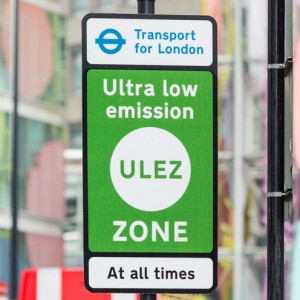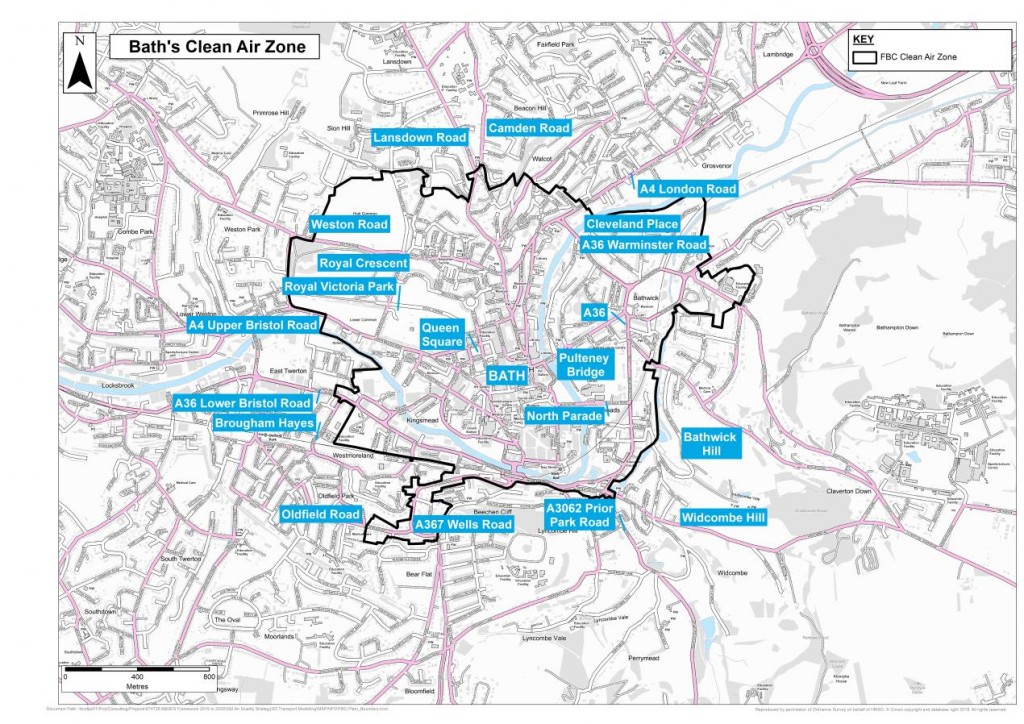More than 9,000 businesses are being contacted by Bath & North East Somerset Council to help them find out if they will be charged to drive in the city centre when its delayed Clean Air Zone is launched next March.
Firms will also be told if they can get financial support to enable them to upgrade any vehicles that will fall foul of the scheme – the first of its kind in England outside of London.
While private cars and motorbikes will not be charged to enter the Clean Air Zone (CAZ) from March 15 next year, higher emission taxis, private hire vehicles, minibuses, LGVs and vans will need to pay £9 a day with £100 a day for higher emission buses, coaches and HGVs.
Charges will also apply to pre-euro 6/VI diesel and pre-euro 4 petrol vehicles
The CAZ was due to go live next month but was delayed due to the coronavirus pandemic. It will operate in the city centre 24 hours a day, seven days a week, 365 days a year.
The council said it had considered air quality, traffic levels and the impacts of the coronavirus pandemic on local businesses and the economy before agreeing the new start date with the government.
Businesses, including those in neighbouring authorities that have premises and/or regularly drive in the zone, can apply for a grant or interest-free financial help to enable them to upgrade vehicles to make them complaint.
The council said under the scheme an eligible van driver could receive up to £4,500 in grants, plus interest-free finance, to help them upgrade to a similar, compliant vehicle.
Larger grants will be available of up to £20,000 for HGVs and £35,000 for buses and coaches.
The council has also amended the scheme in the light of the pandemic so that any eligible business that fails its initial credit check can re-apply once its finances had improved.
In addition, these drivers would be able to apply for exemptions on their non-compliant vehicles for up to two years.
There will also be a wide range of exemptions available for hard-to-replace or special vehicles, and to support disadvantaged groups and vital services in the city.
Applications for all exemptions and discounted vehicles will open in November. Businesses affected by charges are also advised to check the council’s website at www.bathnes.gov.uk/BathCAZ for a list of local exemptions and whether they might be eligible for financial support to upgrade their vehicle or fleet.
Council leader Dine Romero said: “In 2017 the government directed us to reduce levels of nitrogen dioxide in the city in the shortest possible time. Technical work showed that a charging zone was the only measure that could achieve compliance in the time frame we were given.
“The council consulted widely on this and agreed to introduce a class C charging CAZ with traffic management at Queen Square, charging all higher emission vehicles, except private cars and motorcycles, to drive in Bath city centre.
“However, there is no getting away from the fact that Covid-19 has had a significant impact on many businesses and this will be an additional cost that they have to consider.
“We have worked hard to secure a considerable package of financial and other support to help business owners and I would urge them to get in touch, talk to us and find out how we can help.
“We all want clean air and the zone is a step towards our wider ambitions for Bath and North East Somerset to address air quality and tackle the climate emergency.”
The council secured funding of just over £7m to introduce the scheme and £11.3m to provide support such as the financial assistance scheme.
Bath’s CAZ will be followed by similar schemes in a number of mostly larger cities, including Bristol, Southampton Leeds, Birmingham, Sheffield and Greater Manchester.
For full information on Bath’s clean air zone, including charges, a map of the zone, exemptions and financial support, visit www.bathnes.gov.uk/BathCAZ
Below: Map showing the boundaries of Bath's Clean Air Zone. Click on the image to enlarge it





















